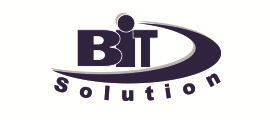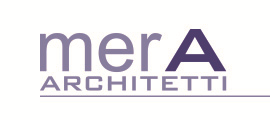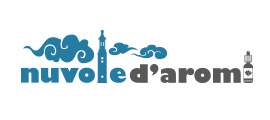What is expository writing? How to use it effectively?

Expository writing is defined as a style that aims to clarify something, explaining and expounding a topic to give clarity and context. This makes sense when you understand that the word expository comes from expose. In this article, we'll dive into the world of expository writing to unravel the essence of this powerful form of communication. Expository writing can be seen as a beacon, illuminating ideas, facts, and explanations with clarity and purpose. It acts as a bridge between knowledge and understanding, taking readers on a guided tour through a topic, be it science, history or even everyday life. Unlike its more creative counterparts, expository writing relies on objectivity, presenting information logically and impartially. Its main goal is to inform, educate and enlighten readers,
Through carefully crafted sentences, expository writing presents a panoramic view of a topic, breaking down complex concepts into easily digestible chunks for the reader's understanding. It serves as a reliable guide, answering questions, providing examples, and drawing connections to enhance understanding. So whether you're a student trying to master academic writing or a curious individual looking for knowledge, this article will give you an insight into everything from exploring its purpose and techniques to learning how to use this style. of writing effectively.
Purpose and objectivity
Purpose and objectivity are two crucial pillars of expository writing, shaping its essence and distinguishing it from other writing styles. The purpose of expository writing is to inform, explain, and educate the reader about a particular topic. Unlike persuasive or creative writing, which may seek to sway opinion or evoke emotion, expository writing remains steadfastly focused on presenting information in a neutral and unbiased manner. It relies on facts, evidence, and logical reasoning to build a solid foundation for understanding. Objectivity is vital in expository writing, ensuring that personal biases and opinions are set aside in favor of presenting a balanced and accurate account. Writers must strive to be impartial and base their arguments on verifiable information rather than subjective points of view. By advocating for objectivity, expository writing instills confidence in the reader, enabling them to rely on the information being presented. It allows readers to form their own opinions and draw their own conclusions based on the evidence provided. The purpose and objectivity of expository writing combine to create a reliable source of knowledge, enabling readers to expand their understanding of various topics and make informed decisions.
Structure and Organization
Structure and organization play a vital role in expository writing, providing a framework that guides readers through the information presented and ensures clarity and consistency. A well-structured expository piece typically follows a logical progression, starting with an engaging introduction that grabs the reader's attention and provides a clear overview of the subject. The introduction often ends with a concise thesis statement that sets the direction for the rest of the writing. Body paragraphs form the core of the expository piece, each focusing on a specific aspect or supporting point relating to the thesis statement. These paragraphs are organized in a coherent way, often using a thematic sentence at the beginning to introduce the main idea and providing evidence, examples or explanations to support the claims made.
Transitions between paragraphs help keep ideas flowing and allow for smooth transitions from one point to another. Finally, the conclusion brings the expository piece to a satisfying conclusion by summarizing the key points discussed and reinforcing the main argument or message. This structure and organization in expository writing ensures that the reader can easily follow the writer's thought process and retain the information presented. It also improves the overall readability and effectiveness of the piece, making it an invaluable tool for conveying complex ideas in a clear and accessible way.
Clarity and Simplicity
Clarity and simplicity are essential qualities that distinguish expository writing, enabling readers to easily grasp complex ideas. Expository writing strives to present information clearly and directly, free from ambiguity or confusion. This is achieved through concise and precise language that avoids unnecessary jargon, technical terms or convoluted sentence structures. The goal is to make writing accessible to a broad range of readers, regardless of their prior knowledge of the subject. Using simple language and providing clear explanations, expository writing promotes understanding and facilitates learning. Additionally, the use of concrete examples, vivid descriptions, and recognizable analogies can further enhance clarity, as they provide readers with tangible references to anchor their understanding.
Simplicity in expository writing does not imply oversimplification, but rather a focus on presenting complex ideas in a digestible format. By removing unnecessary complexities, expository writing allows readers to engage with the content, follow the author's reasoning, and understand the information conveyed. Clarity and simplicity within expository writing foster effective communication and make it an invaluable tool for imparting knowledge to readers of diverse backgrounds and skill levels.
Research and evidence
Research and evidence are vital components of expository writing, lending credibility, depth, and reliability to the information presented. Expository writing relies on extensive research to gather relevant facts, data, and expert opinion on the subject. It involves browsing reputable sources such as scholarly articles, books, research studies, and credible websites to ensure accuracy and reliability. The research process allows the writer to develop a thorough understanding of the topic and present the reader with a comprehensive view. Additionally, expository writing places great emphasis on providing evidence to support claims and arguments. This evidence can take the form of statistics, examples, case studies, historical events, or logical reasoning.
By incorporating reliable evidence, expository writing enhances its persuasiveness and helps readers grasp the relevance and significance of the information presented. It also encourages critical thinking and allows readers to gauge the strength of arguments put forward. Through the use of well-researched and solid evidence, expository writing fosters a sense of trust between writer and reader, reinforcing the credibility of the content and creating a knowledge base that informs and enlightens.
Public awareness
Audience awareness is a crucial aspect of expository writing, as it allows writers to tailor their content to effectively engage and communicate with their intended readership. Understanding the background, knowledge level, and interests of your target audience helps shape the tone, style, and level of sophistication of your writing. By tailoring the language and vocabulary to match the audience's familiarity with the subject, the writer ensures that the information is accessible and understandable. Additionally, audience awareness allows writers to anticipate potential questions or concerns readers might have and proactively address them within the text.
By considering readers' perspective, writers can choose real-life examples, analogies, or scenarios that resonate with their experiences, making the content relatable and engaging. This increases the reader's interest and engagement in the text, increasing the likelihood of understanding and retaining the information. Additionally, audience awareness helps writers strike a balance between providing enough background information for novices while still meeting the needs of more experienced readers. By acknowledging and respecting diversity within audiences, expository writing becomes inclusive, fostering a sense of connectedness and creating an environment conducive to effective communication and learning.
Expository writing
Notable examples of expository writing can be found in various disciplines and formats. In the realm of journalism, investigative reports that delve into complex issues, presenting facts and evidence to inform the public, exemplify expository writing. Scientific papers, which provide detailed explanations of research methodologies, findings, and conclusions, are another prime example. Textbooks and scholarly articles that present factual information, theories, and analyzes also fall under the scope of expository writing. In the realm of literature, biographies and historical accounts that strive to present a factual and unbiased portrayal of events may be considered expository writing. Also, instruction manuals, technical guides, and encyclopedic entries that aim to explain concepts, processes, or procedures in a clear and concise manner are notable examples of expository writing. These diverse examples highlight the versatility and importance of expository writing in effectively conveying information across various fields and contexts.
What is expository writing? - Final thoughts
As we can see from the above explanations and examples, expository writing is not only an interesting writing style, but a necessary one. It provides a public service and a necessary way to explain complex issues to the masses. Now, armed with all of the information provided, you'll be able to recognize this style of writing in the future, as well as be able to spot some of the specific nuances and details that make up expository writing. Or, perhaps, this will inspire you to write some expository writing yourself.
When you subscribe to the blog, we will send you an e-mail when there are new updates on the site so you wouldn't miss them.
By accepting you will be accessing a service provided by a third-party external to https://www.insightadv.it/


































































Comments